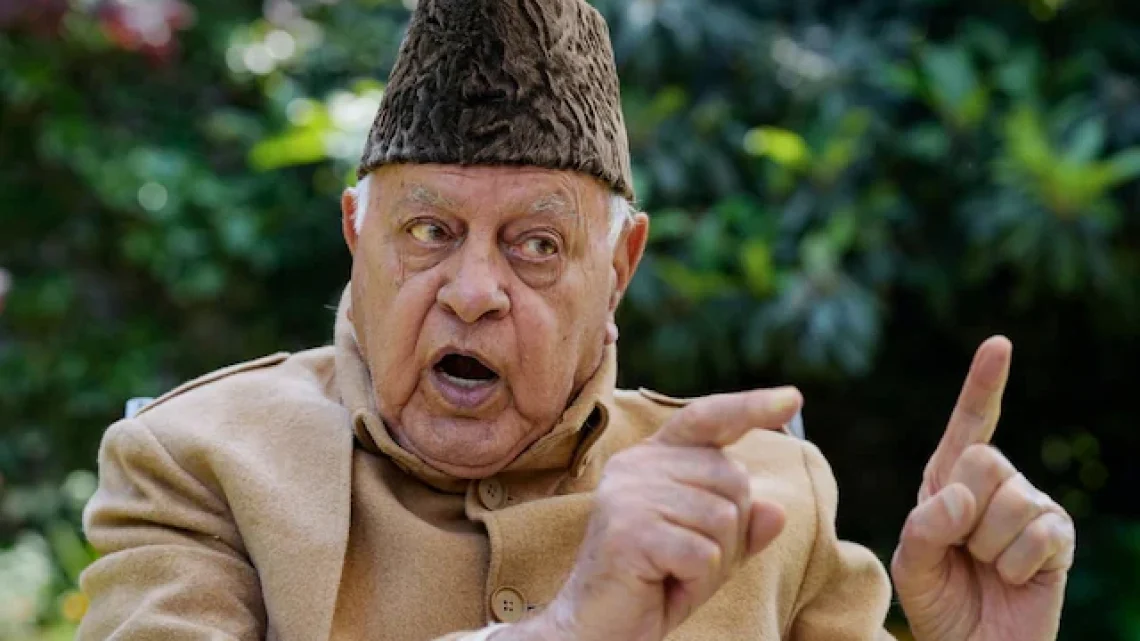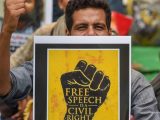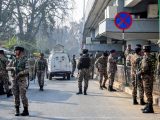
Farooq Abdullah to India: End Union Territory Status, Restore Statehood to IIOJK
November 4, 2024Srinagar, Indian Illegally Occupied Jammu and Kashmir (IIOJK) – National Conference President Farooq Abdullah has renewed his demand for the restoration of full statehood to Jammu and Kashmir, firmly opposing its current status as a union territory. Addressing a gathering in Srinagar, Abdullah voiced the region’s deep-seated discontent over the 2019 decision by the Indian government to abrogate Article 370 and reduce Jammu and Kashmir to a union territory, a status that many residents view as a loss of autonomy and political identity.
“The time has come”
According to Kashmir Media Service, Abdullah underscored that the people of IIOJK have not accepted and will not accept this reclassification, calling for the return to statehood urgently. “We don’t want to accept the Union Territory status,” he declared. “The time has come; it should be finished now.”
His remarks resonate strongly with widespread sentiments among locals and political leaders who believe that union territory status diminishes their representation and limits self-governance.
Conditions Post-370 Revocation
Since the revocation of Article 370 by the Modi administration in August 2019, Jammu and Kashmir has been directly governed by the central government. The unilateral decision stripped the region of its special status and autonomous powers, which many residents argue protected their cultural, social, and political rights within the Indian Union.
While the government claims the move aimed to integrate the region more closely with India and boost development, local leaders, including Abdullah, argue that it has had the opposite effect, eroding trust and alienating the population.
Panchayat elections: The way forward
Political analysts indicate that Abdullah’s renewed demand for statehood reflects a larger, growing movement within Jammu and Kashmir for restoring its autonomy. The demand also comes amid preparations for upcoming Panchayat elections, a local-level governance structure. Abdullah expressed the importance of these elections, signaling that political engagement and self-governance at even the most basic level remain vital under the present circumstances. The National Conference, along with other regional parties, hopes to use this election to reassert the rights and voice of the Kashmiri people, especially under the constraints imposed by union territory status.
The National Conference leader also drew attention to what he views as a fundamental misunderstanding by the Indian central government regarding the aspirations of IIOJK’s people. Many believe the government’s moves to impose tighter control through the reclassification do not address the underlying desire for self-determination. Instead, they argue it fosters a sense of disenfranchisement. Abdullah’s statement highlights that the region’s residents perceive this status as a form of institutionalized marginalization, curbing their capacity to participate meaningfully in their governance.
Delhi’s False Claims of Development
Meanwhile, New Delhi has defended its position, contending that the repeal of Article 370 was essential for strengthening India’s territorial integrity and security. Government officials claim the move has accelerated developmental projects, improved infrastructure, and attracted investments. However, local leaders and activists continue to question these assertions, suggesting that economic benefits alone do not compensate for the loss of political rights and autonomy.
Abdullah’s comments serve as a call to action for the Indian government to reevaluate its policies toward IIOJK, particularly in light of the region’s unique historical, cultural, and political context. As calls for statehood intensify, New Delhi faces the challenge of addressing these grievances to prevent further estrangement. The outcome of the upcoming Panchayat elections may also serve as an indicator of the local populace’s stance on the current governance arrangement, as many Kashmiris hope for a more representative and autonomous future.
In urging the restoration of statehood, Abdullah represents a significant sentiment within Jammu and Kashmir: the enduring hope that their political identity and right to self-governance will be restored.

